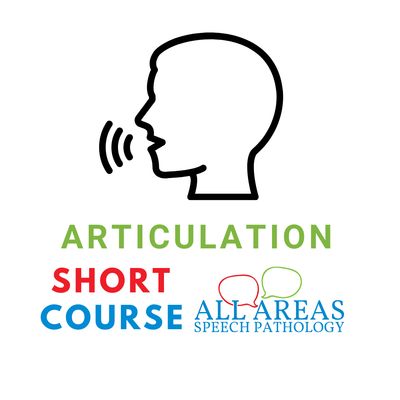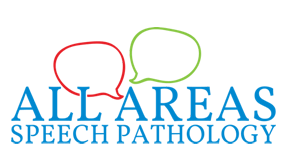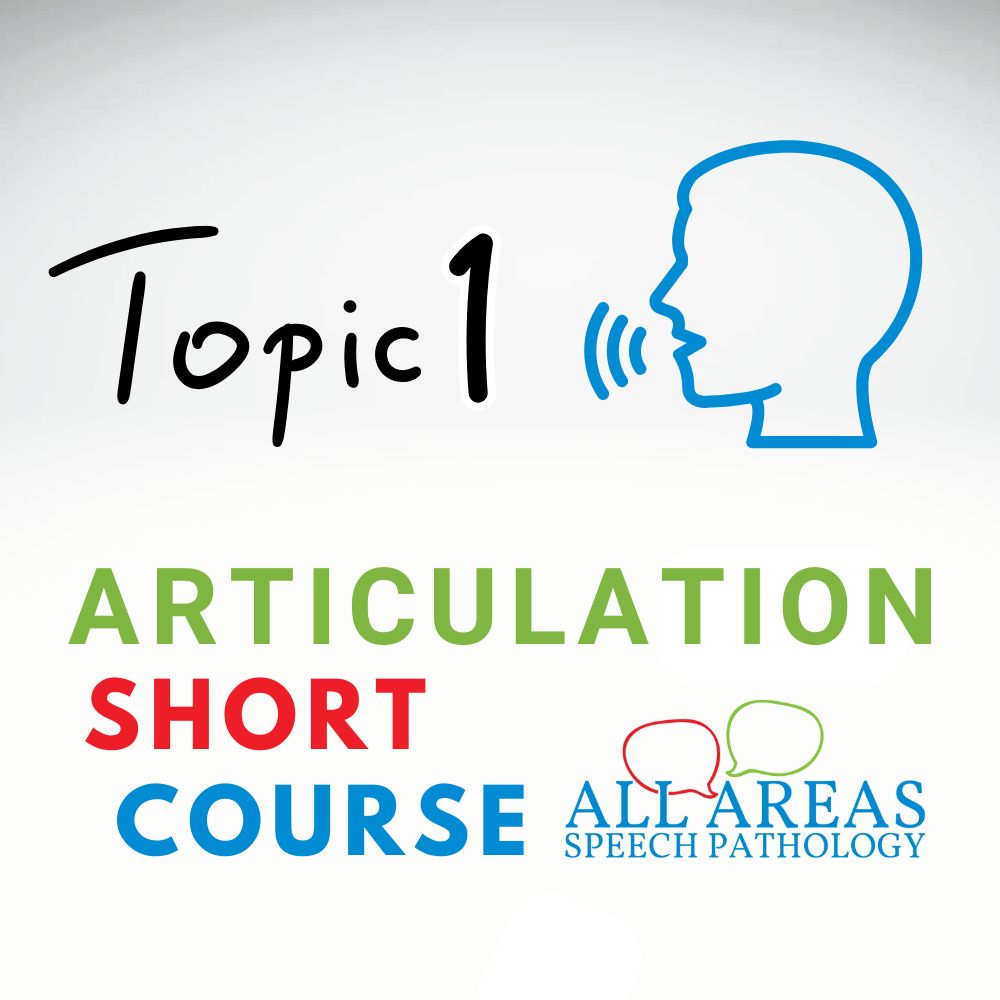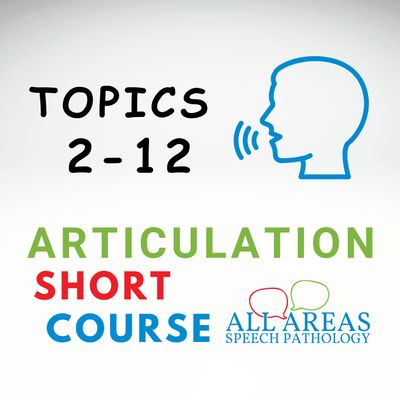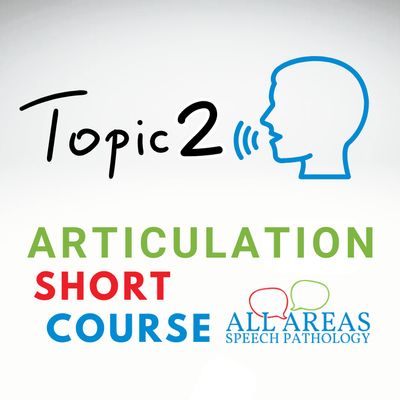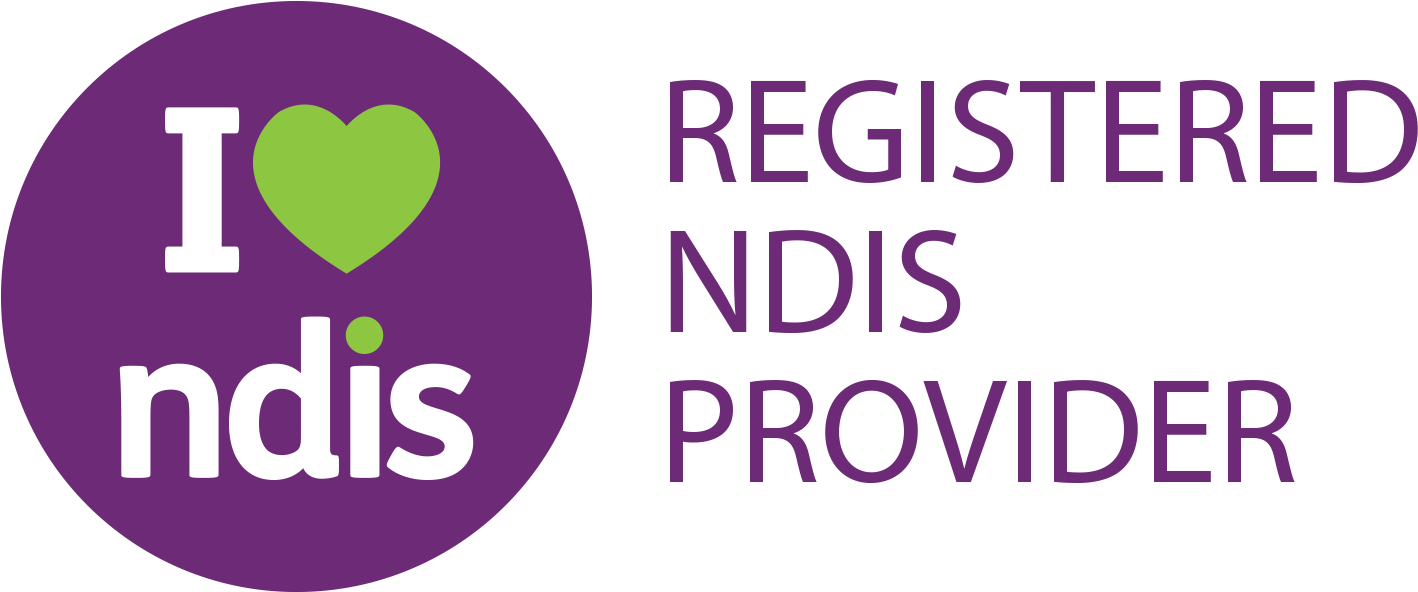Topic One (choose this option to trial the first topic before proceeding to the full course)
Would you like to develop your confidence, knowledge and skills in assisting people to develop their speech clarity?
Do you work in a preschool, school, early intervention setting or disability service?
Do you have a family member on a speech pathology waiting list?
Or are you considering your options about getting assistance for articulation skills and not sure what to do next?
Then the Articulation Short Course, developed and delivered by Jane Beale, Speech Pathologist, might be just right for you!
ONLINE DELIVERY
Delivered via a self-study "online" learning mode, the short course is now in its fifth year. The course has been popular with school assistants, early childhood educators, teachers and anyone who works directly with children or adults to improve speech clarity.
The short course has also been suitable for family members who have been seeking training options to support a child or adult at home with an articulation program.
Note that NDIS funding is able to be used for course fees for the carers of eligible* participants (*enquiries welcome).
TRY ONE TOPIC:
Enrol in TOPIC ONE ONLY to trial the course. There's no obligation to continue after Topic One.
To assist you with getting started in learning about Articulation Skills, we are offering Topic One at 60% off the RRP - enrol now for $18.00 + GST (RRP of $45.00 + GST).
Topic One covers...
Exploring Articulation Skills - How We Produce Speech Sounds with the Mouth and Larynx
Articulation skills refer to the motor skills a person uses to pronounce the sounds of English. Also known as speech clarity , including how we produce individual vowel and consonant sounds with the mouth. Articulation refers to the way speech sounds are combined to form whole words.
Articulation difficulties impact on how easily a child or adult can be understood when speaking in sentences. Poor articulation may result in communication difficulties, social withdrawal or negative behaviour outbursts.
About the Course
The Articulation Short Course has been specifically created for:
Early Childhood Educators, Early Intervention Workers, School Teachers, Support Staff, Disability Workers and Allied Health Assistants!
Are you currently supporting a child who sees a speech pathologist? Do you get asked to follow up with a speech pathology program in the child's everyday environment such as their preschool or school?
Learn about the terminology speech pathologists use and why they select certain goals and steps when preparing a speech pathology program. Gain confidence in interpreting the strategies provided to you, including things like: word position, when to correct errors, what to do if the child is reluctant to try...
12 Topics:
The full Articulation Short Course consists of 12 Topics (Allow 2.5 to 3.5 hours per topic).
COURSE CONTENT: Participants learn about the following in Topic One
- How speech sounds are made using the articulators and larynx
- The 44 phonemes in English, including 24 consonants and 20 vowels
- Phonetic transcription symbols for voiceless th /θ/, voiced th /ð/ and voiced zh /ʒ/
- The difference between consonant and vowel phonemes
- The characteristics of consonant phonemes - Place, Manner and Voice
- The oral structures : tongue, teeth, lips, alveolar ridge, soft palate, larynx & vocal folds
- The categories for manner: plosives, nasals, glide, fricatives, affricates and liquids
- How to determine whether sounds are voiced or voiceless
- Diagrammatic view of where sounds are made in the mouth (front, middle, back)
WHAT'S INCLUDED IN THE LEARNING FORMAT OF TOPIC ONE OF THE ARTICULATION SHORT COURSE?:
Topic One is broken down into the following parts of learning:
Part A:
Preparation Steps (items 1 - 3)
- Read the Handout (item 1)
- Watch the Video (item 2)
- Attempt the Worksheet (item 3)
PART B:
Main tutorial section of Topic One (items 4 - 6)
- Download the Activity Booklet (item 4)
- Download the Tutorial Booklet (item 5)
- Watch and Engage with the Tutorial via a pre-recorded video (item 6)
PART C:
Further learning and consolidation of new information (items 7 - 9)
- Access extension learning (item 7)
- Self-Mark and Reflect on Worksheet (item 8)
- Complete Topic Quiz then send in for feedback from speech pathologist, including email support to assist with achieving 100% accuracy on the quiz content (item 9)
FOR EACH TOPIC - receive a Certificate of Completion (item 10)
List of 12 Topics that are included in the Full Articulation Short Course
Topic One: Exploring Articulation Skills
How We Produce Speech Sounds With the Mouth and Larynx
Topic Two: Identifying Speech Sound Errors
Listen to Spoken Words and Identify Sound Error Patterns
Topic Three: Writing Down What We Hear
Document Pronunciation of Error Sounds in Words
Topic Four: Learning About Articulation Programs
Move Up and Down Steps and Prepare Contingencies
Topic Five: Delivering an Articulation Program
Work Effectively with Preschool Children (3 to 5 years)
Topic Six: Delivering an Articulation Program
Work Effectively with Early Primary Students (Kindy - Year 2)
Topic Seven: Delivering an Articulation Program
Work Effectively with Older School Students (Years 3 - 12)
Topic Eight: Delivering an Articulation Program
Adapt Strategies to Meet Needs of Students in Support Classes
Topic Nine: Using Finger Spelling to Help Speech Pronunciation
Assist Clients to Develop Articulation Skills
Topic Ten: Tips for Generalisation Once a New Sound is Correct
Help New Sounds Be Used in Everyday Speech
Topic Eleven: Programs for Sound Error Patterns
Learn How to use Minimal Pairs Approach to Sound Errors
Topic Twelve: Behaviour Strategies for Reluctant Learners
Make Articulation Skills Practice Enjoyable/Effective
The Articulation Short Course is hosted on MOODLECLOUD.

Upon enrolment in the Articulation Short Course, participants are authenticated as official users on the AASPEECH Moodlecloud Site. This enables access to Topic One of the course.
Moodle can be accessed on a desktop computer or hand held device. All materials can be viewed online or downloaded to a desktop or handheld device.
Each topic includes handwritten activities that assist with consolidating skills. Participants are encouraged to download and print activity sheets for the handwritten activities however, marking-up documents on screen is also suitable for people who prefer not to print.
We can print and send out booklets (for a small additional fee) for participants who do not have access to a printer but prefer to complete activities using a pen or pencil.
TIME FRAMES FOR COMPLETING TOPICS:
- For people undertaking the full course, the topics are suited to being undertaken on a weekly or fortnightly basis (however, participants may choose their own pace for completion of each topic)
- Participants complete the entire short course via self-study, using an online ‘on-demand’ approach.
- Course access is is available 24/7 via the aaspeech page on the Moodlecloud website (or via the Moodlecloud App on a compatible device).

